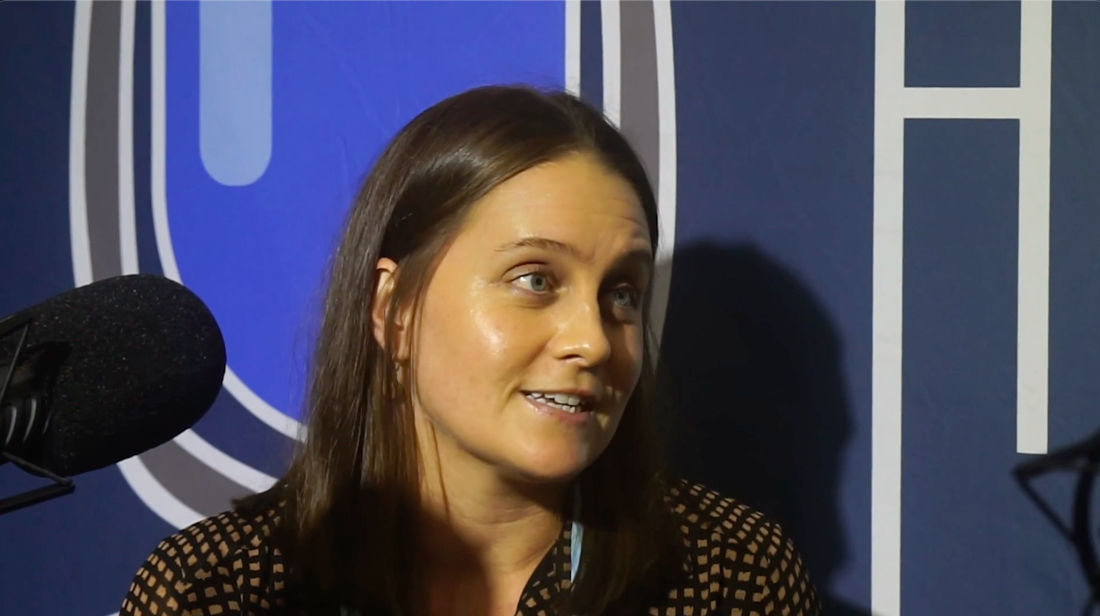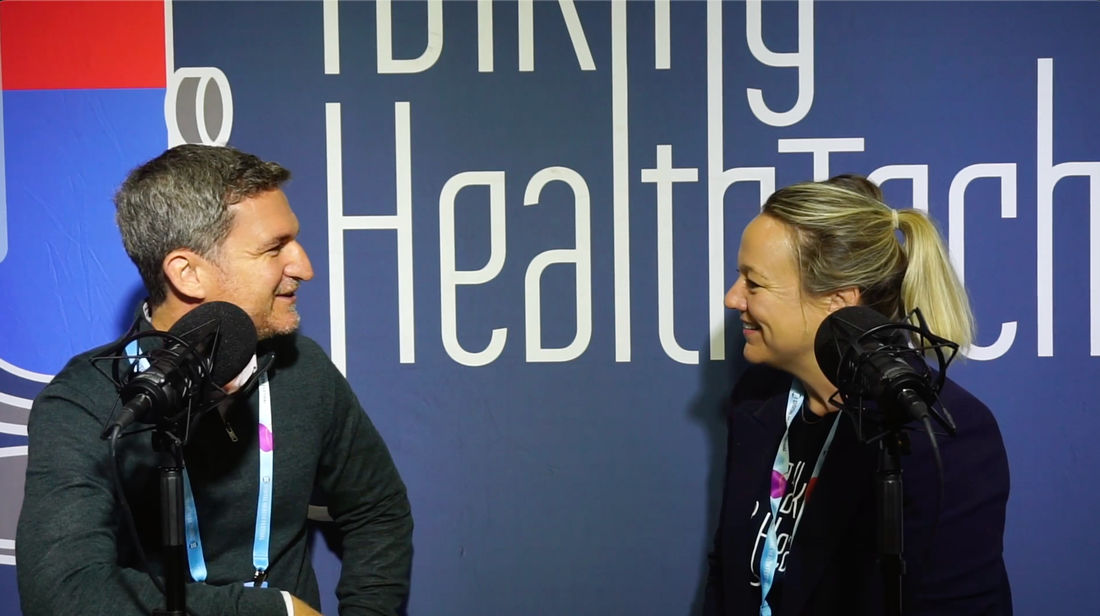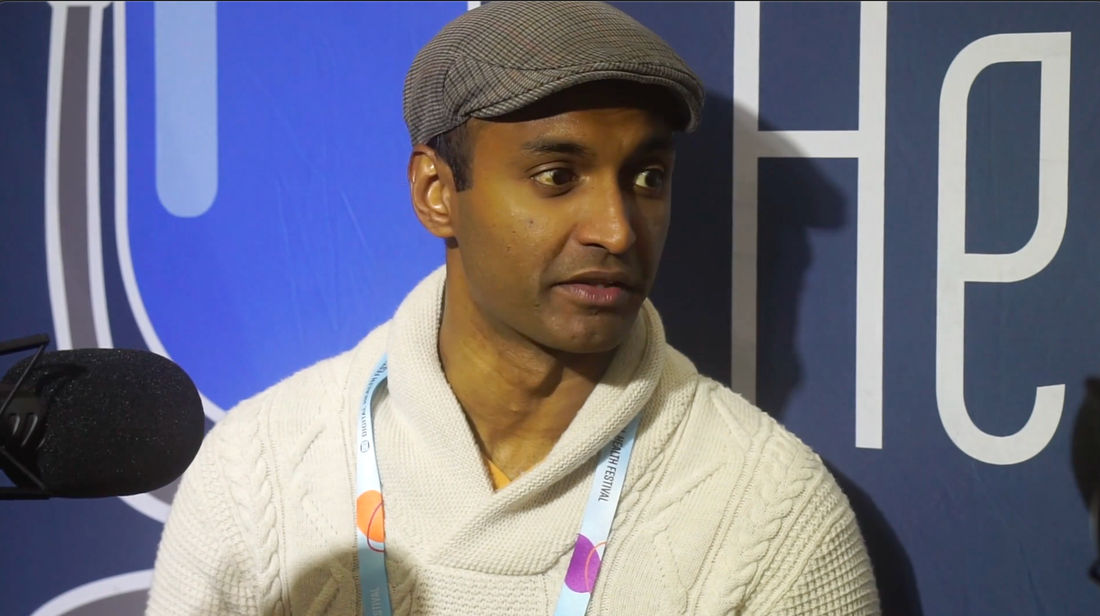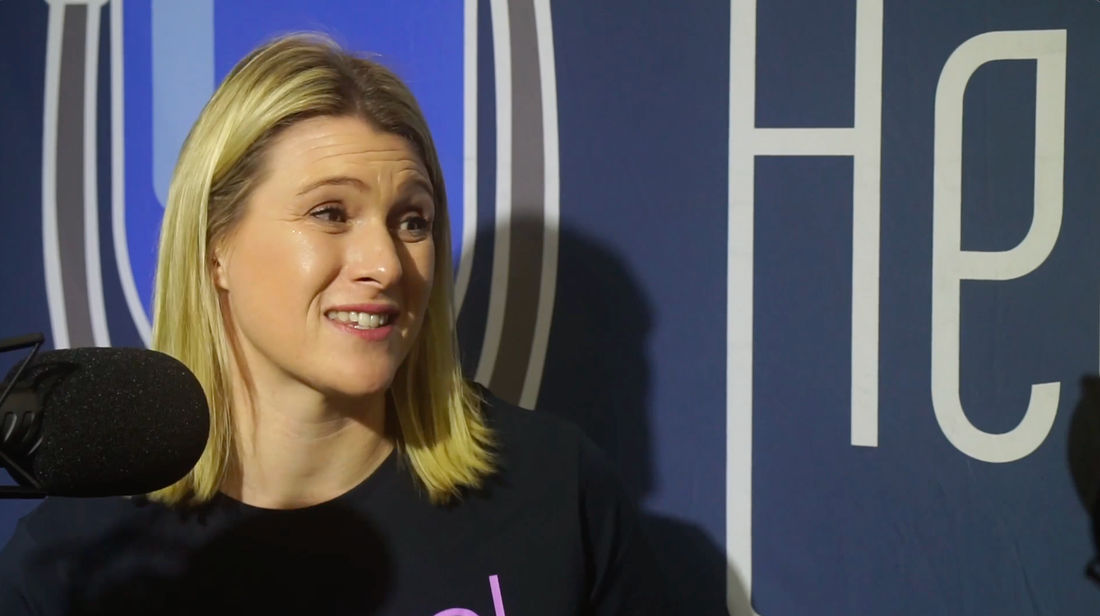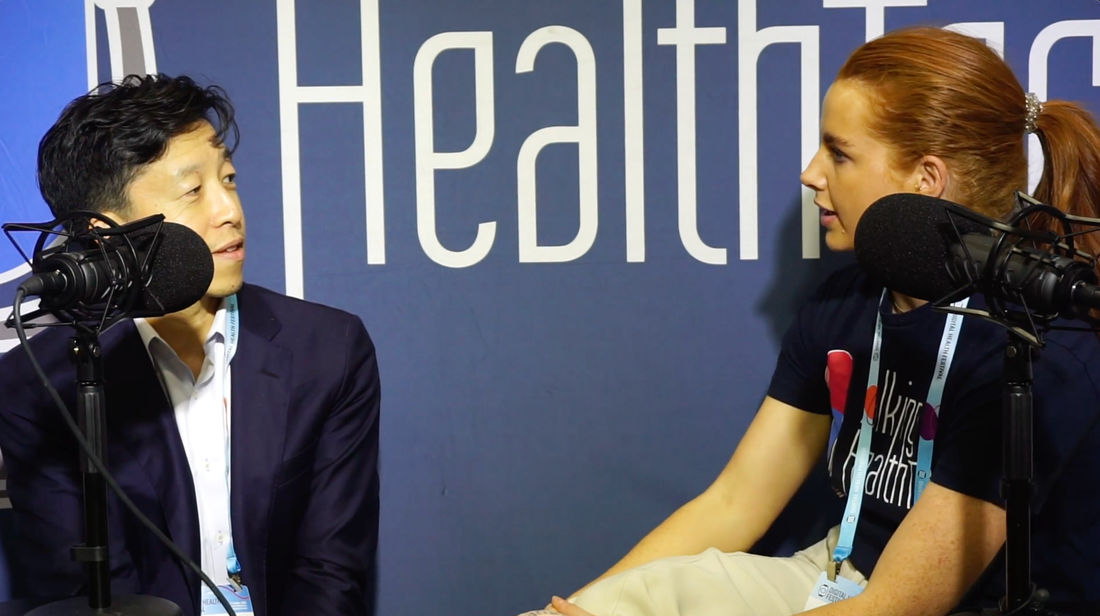Talking HealthTech: 360 – What is the future of healthcare? Digital Health Festival 2023 Feature Episode

Source: talkinghealthtech.com
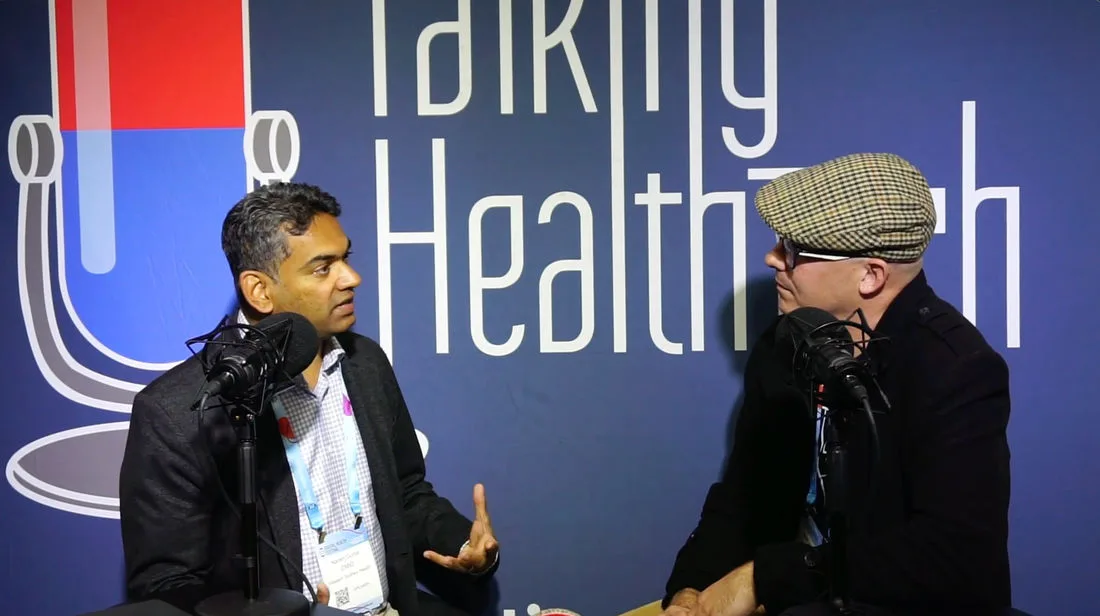
Provided by:
Talking HealthTech
Published on:
14 July 2023
When it comes to the future, there’s a lot we don’t know for sure. But what if we could catch a glimpse of what lies ahead?
At the Digital Health Festival 2023 in Melbourne, Australia, attendees had the chance to explore the future of healthcare. In this episode, we’ll share highlights from interviews with experts and exhibitors who shed light on topics like Artificial Intelligence, patient-centric care, equity, and access in the healthcare industry.
In this episode you’ll hear from a number of speakers who featured in DHF:
02:30 – Naren Gunja – CMIO, Western Sydney Health
04:04 – Peter Vranes – CEO & CoFounder, Nutromics
09:00 – Simeon Naughton – Co-director, Health Care Panel Asia
10:55 – Madison Stone – Virtual & Digital Health, Innovation & Improvement – St Vincent’s Health Network Sydney
12:55 – Charles Papp – Founder & CEO, KRE8 IT
17:50 – Deb Hornsby, General Manager, Mater Pathology
21:34 – Kylie Ovenden – Regional Innovation Hub Manager, Bendigo Health
23:12 – Stefan Harrer – Chief Innovation Officer, Digital Health CRC
25:13 – Christopher Skene, Founder & CTO, Aurabox
29:10 – Dr Talat Uppal – Director, Women’s Health Road
32:28 – Dr Michael Bonning – President AMA (NSW) and Chief Medical Officer
38:50 – Dr. Prash P., Co-Founder – Enosis
42:51 – Dr Elizabeth Berryman – CEO & Founder, chnnl
46:11 – Dr Bryan Tan – Chief Health Officer, Salesforce
The interviews in this episode were conducted by our proud THT Ambassadors Nathan Moore, Ruby Hartley, and Sophie Turner. You can connect with these three amazing humans and keep the conversations going within our THT+ Membership. Learn more about joining the community here.
Naren Gunja – CMIO, Western Sydney Health
In the rapidly evolving landscape of healthcare, digital transformation has emerged as a key driver of efficiency and improved patient care. At the Digital Health Festival 2023, Naren Gunja, the Chief Medical Information Officer for Western Sydney Health, shared his insights on the future of healthcare and the pivotal role of technology in revolutionising the industry. With a focus on digitising healthcare facilities, Naren highlighted the need to automate processes and streamline efficiency, ultimately enhancing the delivery of patient care.
Naren emphasised that one of the major challenges faced by healthcare systems is the reliance on manual processes that necessitate physical presence. The future, he envisions, lies in mobility and accessibility, where individuals can access healthcare services and information conveniently through the palm of their hand. The days of being tethered to a specific location or computer terminal are giving way to a new era of healthcare on demand.
The digital Hospital is a concept that Naren believes holds immense promise. By leveraging digital platforms, healthcare facilities can automate workflows, eliminate paperwork, and enhance communication between healthcare providers. This not only optimises operational efficiency but also empowers patients to take control of their health. With the ability to access care and information anywhere and at any time, individuals can experience healthcare that is truly tailored to their needs.
As we move towards a future driven by technology, Naren’s vision offers a glimpse of what lies ahead. The transformation of healthcare facilities into digital platforms paves the way for a more efficient and patient-centric system. By embracing mobility, healthcare providers can deliver care that is accessible, convenient, and personalised. The future of healthcare is evolving, and it’s clear that digitalisation will play a crucial role in shaping a new era of healthcare delivery.
Peter Vranes – CEO & CoFounder – Nutromics
Peter Vranes is the CEO & CoFounder of Nutromics, who have developed a wearable medical patch that can continuously monitor various diagnostic targets in real time, opening up new possibilities for healthcare.
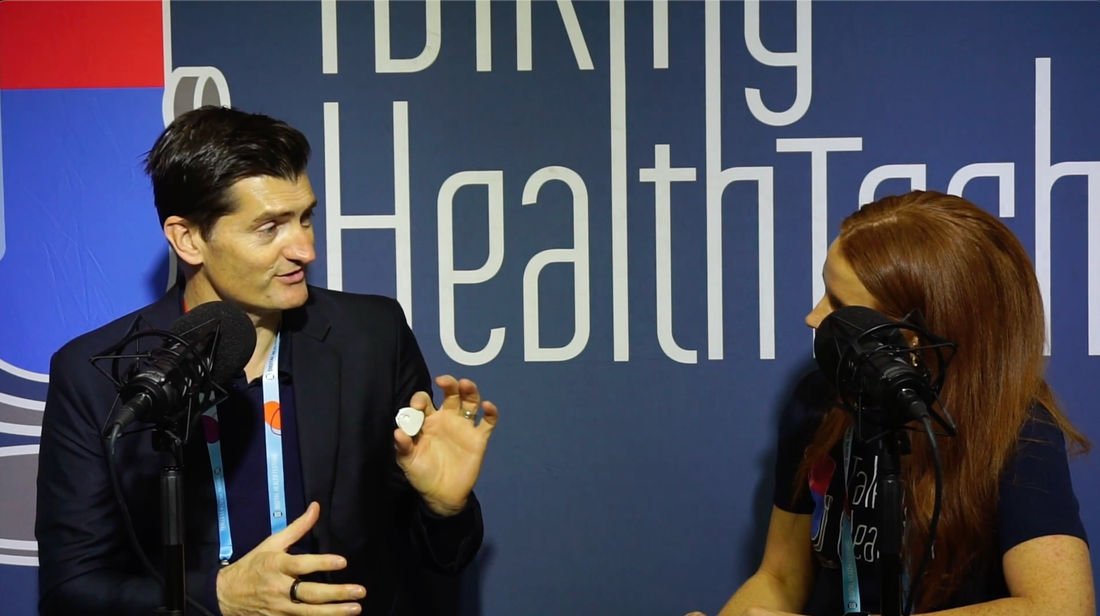
The wearable patch operates by monitoring interstitial fluid, a fluid just below the skin’s surface. With tiny micro-needles embedded in the patch, Nutromics can extract continuous readings of diagnostic targets without the need for invasive blood sampling. By leveraging interstitial fluid, the technology offers a minimally invasive and user-friendly approach to diagnostics.
Peter’s presentation at the Digital Health Festival focused on showcasing the potential of Nutromics’ wearable technology. He highlighted its ability to enable remote patient monitoring, a growing trend in healthcare. Remote patient monitoring offers benefits for patients, hospitals, and payers, as it allows for personalised care at home, reduces costs, and facilitates Early Intervention. Nutromics’ wearable patch, with its Bluetooth connectivity and cloud-based monitoring, plays a vital role in making remote patient monitoring a reality.
At the event, Peter and his team at Nutromics shared a future where healthcare is transformed by wearable diagnostics. With plans to actively contribute to the remote patient monitoring landscape, Nutromics is not just watching the change unfold; they are actively making it happen. By combining innovation and technology, Nutromics aims to improve patient outcomes and drive the adoption of personalised, home-based healthcare solutions.
Simeon Naughton – Co-director – Health Care Panel Asia
Simeon Naughton is the Co-director of Health Care Panel Asia and a driving force behind Hippo Health Intelligence. Simeon’s expertise lies in market research for the healthcare industry in Asia, with a strong focus on Digital Health and the democratisation of health data.
Simeon highlighted the significance of Digital Health data and its potential to enhance the Patient Experience. Through the utilisation of Blockchain technology and Artificial Intelligence, Simeon’s vision revolves around decentralising and democratising health data. Currently, much of the data collected in the industry remains siloed, limiting its Accessibility and impact. Simeon aims to change this paradigm by creating data sets on a marketplace and incentivising individuals who contribute their data, such as doctors, nurses, and patients.
When discussing the future of healthcare, Simeon firmly believes in a digital future that is more democratic and global. His vision encompasses bridging gaps in access to medical services by leveraging technology. By enabling individuals from regions with limited access to quality healthcare to connect with Specialists through virtual platforms, Simeon envisions a more equitable healthcare system. This transformation will empower people to seek the care they need regardless of geographical constraints, ultimately leading to better healthcare outcomes for all.
As we move forward, the future of healthcare according to Simeon lies in the convergence of digital technologies and a commitment to democratisation. Simeon Naughton’s expertise and forward-thinking approach shed light on the immense possibilities that lie ahead. By leveraging the power of data, Blockchain, and AI, we can create a healthcare landscape that is more accessible, equitable, and patient-centred. The journey towards this future has already begun, and Simeon’s insights inspire us to embrace digital innovation and bridge the gaps in global healthcare.
Madison Stone – Virtual & Digital Health, Innovation & Improvement
Madison Stone is the Virtual and Digital Health Manager at St. Vincent’s Health Network in Sydney. With a background in physiotherapy, Madison plays a vital role in managing virtual and Digital Health initiatives across the network, including remote patient monitoring and Telehealth.
Madison discussed the key focus of her presentation, which centred around the lessons learned from rapidly implementing remote patient monitoring during the COVID-19 Pandemic. St. Vincent’s Health Network swiftly adapted to the challenges posed by the Pandemic, but the work did not end there. Madison and her team have been actively working to extend the program beyond COVID-19, exploring ways to expand its reach to different cohorts and services. They have encountered challenges related to Change Management, data Integration, and have valuable insights on what they would do differently in future implementations.
Looking ahead, Madison envisions a future where the concept of a traditional Hospital and healthcare wards is disrupted. She believes that healthcare will increasingly move away from the Hospital setting, with a greater focus on delivering care in the comfort of patients’ homes. As Digital Health continues to advance, the distinction between Hospital care and other healthcare services will blur, with hospitals becoming primarily reserved for critical and intensive care needs.
Charles Papp – Founder & CEO – KRE8 IT
Charles Papp is the Founder & CEO of KRE8 IT. Charles and his team build custom software solutions using a low-code platform called OutSystems, which enables the rapid development of various applications, including web portals, mobile apps, and backend integrations. What makes their offering unique is the focus on healthcare Interoperability, aiming to simplify the complexities surrounding Data Exchange in the healthcare industry.
During the interview, Charles discussed the challenges developers face when working with healthcare data and the HL7 FHIR standard. Recognising the need to remove the complexity, KRE8 IT has created a library of healthcare Interoperability components. These components allow developers to work with simple data structures, generating or transforming data into an interoperable format compatible with Hospital systems. By streamlining Interoperability, KRE8 IT provides a solution that enables efficient Data Exchange and collaboration.
Charles showcased their capabilities on the Sci-Fi stage at DHF, where his team demonstrated the live creation of a mobile app that produces a FHIR Interoperability resource in under five minutes. This impressive display highlighted the future direction of healthcare—connected and collaborative care.
Charles believes that the future lies in connected systems where individuals have control over their data and can share it with their chosen providers.
Deb Hornsby, General Manager, Mater Pathology
Deb Hornsby is the General Manager of Mater Pathology in Queensland, who are spearheading an innovative project that aims to transform healthcare transportation using drones.
With the support of Commonwealth funding, Deb and her team are exploring the use of drones to transport Pathology samples and pharmaceuticals in the greater Brisbane area, particularly to remote island communities such as Russell Island, Clay Island, and Stradbroke Island. These communities face extended wait times for test results due to transportation delays. By leveraging drones, the transportation time can be reduced from 4 hours to just 10 minutes, enabling general practitioners to make informed decisions for their patients in a timely manner.
In addition to discussing the drone transportation initiative, Deb shared her vision for the future of healthcare. She emphasised the importance of Interoperability between healthcare systems, a topic that has gained momentum in recent years. Deb believes that the COVID-19 Pandemic served as a catalyst for the community to recognise the significance of timely diagnoses and take greater ownership of their health. She highlights the introduction of rapid antigen tests as an example of individuals actively participating in their healthcare. Deb’s focus on Interoperability extends to the drone Implementation, stressing the need for seamless Data Exchange from the outset to avoid proprietary systems that hinder Interoperability in the long run.
Kylie Ovenden – Regional Innovation Hub Manager, Bendigo Health
Kylie Ovenden is the Regional Health Innovation Hub Manager at Bendigo Health, and is leading the charge in integrating IoT (Internet of Things) technology into the healthcare sector.
Kylie shared insights on the use of IoT networks to remotely monitor patients, particularly in remote regions. With Bendigo Health serving as the lead Hospital across 16 hospitals in the vast Loddon Valley region of Victoria, covering 25% of the state’s landmass and serving 350,000 people, the challenge lies in delivering care to remote patients where connectivity can be a hurdle. By leveraging IoT networks, Kylie aims to empower patients by providing accessible and personalised care in their homes.
Looking ahead, Kylie envisions a future of healthcare that focuses on empowering consumers and patients. Shifting away from the traditional medical model, she advocates for a social model that emphasises behaviour change and Patient Empowerment. Instead of solely aiming to fix people, the goal is to help individuals make informed decisions about their health and lead better lives. By embracing this paradigm shift, healthcare can become more patient-centred and proactive, ultimately leading to improved health outcomes and well-being.
Stefan Harrer – Chief Innovation Officer, Digital Health CRC
Stefan Harrer is the Chief Innovation Officer of the Digital Health Cooperative Research Center (CRC). His role involves identifying the next big ideas in healthcare and ensuring they translate into real-world impacts.
At the Digital Health Festival, Stefan moderated a panel on the responsible use of generative AI in healthcare, delivered a talk on the same topic, and served as one of the judges in the pitchfest.
When envisioning the future of healthcare, Stefan acknowledges the buzz surrounding AI but emphasises the need to dial down the hype and focus on the transformative role it can play. He expresses excitement about both the latest AI technologies and established ones, highlighting their potential to assist human decision makers in healthcare. This extends beyond clinicians to patients as well, as AI has the power to revolutionise workflows, productivity, quality of care, and patient experiences. Stefan believes that through the intelligent and safe use of AI, healthcare can undergo a profound transformation for the benefit of all stakeholders.
Stefan Harrer’s passion for harnessing the potential of AI in healthcare reflects the growing recognition of its transformative capabilities. By leveraging AI as a tool to augment human decision making, healthcare can become more efficient, personalised, and impactful. As the field continues to evolve, responsible and ethical Implementation of AI will be essential to ensure its widespread adoption and maximise its benefits across the Healthcare Ecosystem.
Christopher Skene, Co-Founder & CTO – Aurabox
Christopher Skene is the Co-Founder and CTO of Aurabox, who are on a mission to address a major challenge in the Australian healthcare system.
Aurabox is a cloud platform that enables doctors to easily access and collaborate on medical imaging. Recognising the critical need for timely access to imaging for effective patient care, Chris and his team are bridging the gap by providing a centralised platform where patients can consent to sharing their imaging with relevant healthcare providers, including hospitals, Specialists, insurers, and sporting organisations. The goal is to empower doctors with the imaging they need, wherever and whenever they need it, ultimately improving patient outcomes.
During his talk at the Digital Health Festival, Chris delved into the subject of cloud adoption. While acknowledging the importance of cloud techniques and orchestration in healthcare, he emphasised the need to focus on specific aspects of improvement rather than fixating solely on cloud adoption. Christopher believes that healthcare organisations should consider how they engage with companies that handle data movement through the cloud. The future lies in finding effective solutions for data Interoperability and the seamless exchange of medical information.
When considering the future of healthcare, Christopher recognises the immense potential of Interoperability in Australia’s healthcare system. While acknowledging the government’s ambitions for data movement and Interoperability, he maintains a healthy scepticism and eagerly awaits the results. However, he emphasises the pressing need for greater freedom in the movement of medical imaging between organisations. The demand for improved Interoperability solutions is evident, and Christopher predicts that this will drive the adoption of innovative solutions to ensure seamless data sharing and access in healthcare.
Dr Talat Uppal – Director – Women’s Health Road
Dr. Talat Uppal is an obstetrician and gynaecologist based in Sydney, and is passionate about the intersection of healthcare management and Digital Health.
As a clinical educator and senior lecturer, she understands the power of collaboration between clinicians and Digital Health technologies. Dr. Uppal had the opportunity to share her Multidisciplinary Care model for women’s health on a stage at the Digital Health Festival. Her model emphasises a holistic approach, incorporating various Specialists and healthcare professionals to provide comprehensive care for women. Dr. Uppal believes that Patient Engagement and empowerment will be pivotal in the future of healthcare, requiring robust digital technologies, apps, and portals to place patients at the forefront.
When envisioning the future of healthcare, Dr. Uppal sees exciting possibilities for automation and the reduction of inefficiencies through digital solutions. She emphasises the importance of Patient Engagement and highlights the role of robust digital foundations in facilitating efficient care delivery. Dr. Uppal acknowledges the resistance to change often found within the healthcare sector but emphasises that embracing Digital Health technologies can provide clinicians with more time for direct patient interaction by reducing administrative burdens. She also emphasises the pressing need for Interoperability, recognising it as a pain point in the current healthcare landscape and stressing the importance of collaborative efforts to address this complex challenge.
Dr Michael Bonning – President AMA (NSW) and Chief Medical Officer
Dr. Michael Bonning, a general practitioner and the President of AMA (NSW), has a deep interest in the intersection of Digital Health and frontline clinicians. As a speaker at the Digital Health Festival, he highlighted the need for more discussions involving medical professionals and Digital Health providers to ensure the adoption of technology aligns with the needs of clinicians and patients. Dr. Bonning’s talk focused on revolutionising Virtual Care and finding the right balance between virtual and face-to-face consultations. He emphasised the importance of connecting the right clinician with the right patient at the right time and place, addressing the postcode lottery of healthcare access in Australia.
When envisioning the future of healthcare, Dr. Bonning believes that Digital Health should become an integral part of the overall healthcare system, seamlessly integrated into every aspect of patient care. He urges a shift in perspective, where Digital Health is no longer seen as a separate entity but rather as an essential component of healthcare delivery. By embracing digital technologies, such as electronic medical records and clinician-assisted diagnostics, clinicians can enhance health outcomes, improve efficiency, and provide a better experience for both patients and healthcare professionals. Dr. Bonning advocates for clinicians to actively participate in the design and adoption of new technologies, ensuring that their expertise and perspectives are considered in shaping the future of healthcare.
Dr. Bonning recognizes the importance of reaching clinicians who are on the verge of technology adoption and bringing them into the Digital Health conversation. While many clinicians attending the Digital Health Festival were already involved in Digital Health, he stresses the need to engage those who are not yet fully on board. Dr. Bonning believes that understanding the available technologies and their potential impact is crucial for all healthcare professionals, regardless of whether they are Early adopters. By staying informed and actively contributing to the evolving healthcare landscape, clinicians can navigate the changing healthcare landscape with confidence and ensure that technology serves their patients’ needs effectively.
Dr. Prash P, Co-Founder – Enosis
Prash is co-founder of Enosis, a startup focused on reimagining telemental healthcare. He discussed their work in Virtual Reality-based psychotherapy within the context of psychedelic therapy. The goal is to leverage technology to enhance the retention of insights gained during psychedelic sessions and integrate them into sustainable, long-term psycho-behavioural change models.
Enosis has developed a Virtual Reality platform that allows for a more immersive and impactful therapeutic experience. By moving mental healthcare into a remote setting, Dr. Prash believes that the future of healthcare, especially in the Mental Health sector, lies in the use of immersive three-dimensional screen technology. As VR technologies become more accessible, it opens up new possibilities for designing interventions that leverage the immersive and interactive nature of Virtual Reality to optimise Mental Health care delivery.
However, the regulatory landscape and patient safety remain important considerations in this evolving field. Dr. Prash acknowledges that regulations and approvals play a crucial role in ensuring patient safety and maintaining the quality of care. The shift towards more immersive technologies and the potential for prescribable virtual therapy sessions will require ongoing discussions and collaboration between innovators, regulators, and reimbursement systems to establish frameworks for digital Prescriptions and reimbursement.
Dr. Prash’s vision of a future where telemental healthcare is seamlessly integrated with Virtual Reality therapy holds the potential to revolutionise Mental Health care delivery. By embracing technology and exploring its full potential, clinicians and researchers can improve treatment outcomes, enhance Patient Engagement, and address the evolving needs of individuals seeking Mental Health support.
Dr Elizabeth Berryman – CEO & Founder, chnnl
Dr. Elizabeth Berryman, CEO and founder of chnnl, a connected frontline Wellbeing solution, spoke at the Digital Health Festival about the global crisis affecting the healthcare workforce. The focus of her talk was on understanding why healthcare professionals are leaving the profession and exploring ways to retain them and create an environment where they can thrive. Burnout emerged as a significant factor contributing to the high turnover rate, and Dr. Berryman emphasised the need to care for the carers and address the issues causing Burnout.
In envisioning the future of healthcare, Dr. Berryman reflected on the importance of a digitally enabled workforce. By leveraging AI and other innovative technologies, healthcare professionals can be relieved of administrative burdens and work in a system that supports their productivity. Additionally, she highlighted the significance of providing care in patients’ own homes to free up Hospital services and promote more efficient use of resources. Creating a supportive culture and addressing hierarchy and bullying issues were identified as crucial factors in fostering psychological safety among frontline teams, allowing for greater innovation and adoption of digital tools.
Dr Bryan Tan – Chief Health Officer – Salesforce
Dr. Bryan Tan, Chief Health Officer for Salesforce, is dedicated to shaping the future of healthcare by leveraging transformative technology and prioritising patient-centric care. In his role, he collaborates with the public sector to develop strategies that empower individuals and bring them back to the centre of healthcare.
At the Digital Health Festival, Dr. Tan moderated discussions where client partners shared their experiences using Salesforce’s innovative technology to revolutionise their operations. The focus was on ensuring that patients and consumers are not left behind and that their experiences are prioritised amidst the emphasis on process and policy in healthcare.
Dr. Tan envisions a future where healthcare becomes more personalised and accessible. He believes in a patient-citizen empowered model where individuals have greater control over their treatment and management. This involves utilising technology to deliver engaging experiences and individualised communications. Dr. Tan reflected on the importance of understanding individuals as whole persons, beyond their clinical data, to provide effective and personalised care.
In addition, Dr. Tan recognizes the need to improve workflows and systems for healthcare professionals. By adopting technologies and engagement strategies from other industries, he aims to drive innovation and improve care across various sectors. He also acknowledges the importance of regulatory frameworks that support transparency and dignity in care, such as the shifts seen in Aged Care following the Royal Commission.
Conclusion
The Digital Health Festival 2023 in Melbourne provided a glimpse into the future of healthcare, showcasing groundbreaking technologies and visionary ideas. From discussions on Artificial Intelligence and patient-centric care to addressing equity and access, experts and exhibitors shared their insights. Naren Gunja, CMIO for Western Sydney Health, highlighted the importance of digitising healthcare facilities and streamlining processes to enhance patient care. Peter Vranes, CEO of Nutromics, presented their wearable medical patch that continuously monitors diagnostic targets, revolutionising remote patient monitoring. Simeon Naughton, Co-director of Health Care Panel Asia, emphasised the democratisation of health data and the potential of Blockchain technology to bridge access gaps. These were just a few highlights from an event that showcased a future of personalised, accessible, and technology-driven healthcare. As the industry continues to evolve, the Digital Health Festival serves as a catalyst for innovation and collaboration in shaping the future of healthcare.

